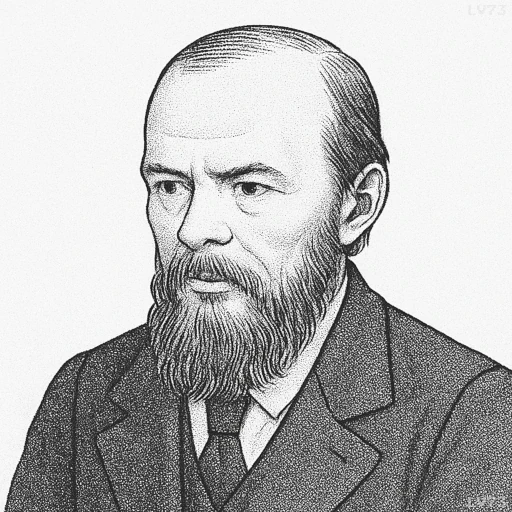“Deprived of meaningful work, men and women lose their reason for existence; they go stark, raving mad.”

- November 11, 1821 – February 9, 1881
- Born in the Russian Empire
- Novelist, philosopher
table of contents
Quote
“Deprived of meaningful work, men and women lose their reason for existence; they go stark, raving mad.”
Explanation
In this quote, Dostoevsky emphasizes the deep psychological and existential need for meaningful work in human life. He argues that when individuals are deprived of a sense of purpose in their labor—when their work lacks significance or connection to their values—they lose their sense of identity and direction. This lack of meaning can cause individuals to feel disoriented, alienated, or even mad, as they are unable to find a solid ground upon which to stand. Dostoevsky often dealt with themes of human suffering, the search for meaning, and the importance of personal integrity. In this context, work is not merely about survival or material gain but about the fulfillment of one’s deeper sense of purpose and self-worth. Without it, people are at risk of spiraling into despair or psychological breakdown, as they no longer have a reason to engage meaningfully with the world.
This concept resonates with Dostoevsky’s broader exploration of alienation and the fragmentation of the self in a world that often prioritizes material success over spiritual or emotional fulfillment. In Notes from Underground, for example, the protagonist struggles with his lack of meaningful engagement in society, and his disillusionment with the world around him leads him to a state of existential paralysis. Similarly, in The Brothers Karamazov, characters like Ivan Karamazov and Dmitri Karamazov grapple with feelings of futility and a loss of purpose, which contribute to their moral and emotional crises. Dostoevsky’s works consistently show that when individuals cannot find meaning in their work, they lose their connection to life itself, leading them to either rage against the world or retreat into despair.
In the modern context, this quote speaks to the ongoing crisis of purpose many people experience in today’s globalized, consumer-driven, and often dehumanizing work environments. In a world where job satisfaction is increasingly tied to one’s sense of identity and self-worth, many people find themselves trapped in work that feels meaningless or soul-crushing, leading to burnout, depression, or anxiety. The rise of automation, the gig economy, and the shift toward more transactional, less meaningful forms of work have made it harder for many to find a sense of purpose in their daily labor. Dostoevsky’s quote serves as a reminder of the vital importance of work that nourishes the spirit and gives life meaning, whether through creative, intellectual, or social contributions. It also highlights the dangers of a society that reduces individuals to mere cogs in a machine, losing sight of the need for individuals to engage in work that aligns with their values and allows for the expression of their human dignity.
Would you like to share your impressions or related stories about this quote in the comments section?

